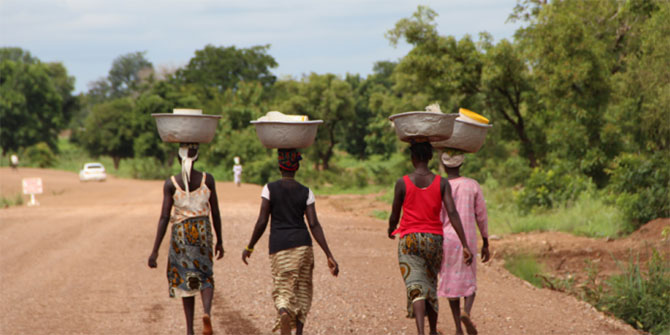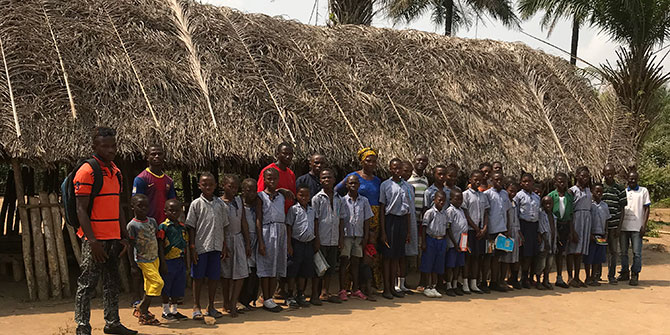Victoria de Menil is a PhD student in LSE’s Department of Social Policy. Here she reviews a recent conference organised by the Africa Mental Health Foundation in Nairobi.
For the past two years, Kenya or, more precisely, the Africa Mental Health Foundation has hosted the Peter C. Alderman Foundation’s annual conference on psycho-trauma. The Alderman Foundation commemorates the life of Peter Alderman, who died at the age of 25 in the twin tower attacks, and it is tirelessly directed by his parents, Liz and Steve Alderman, who have turned their tragedy into a possibility of hope for many.
This year’s event brought together approximately 300 attendees from across Africa for one week of lectures, discussions and workshops held in the spacious Nairobi campus of the Catholic University of Eastern Africa .

Delegates from Kenya, Tanzania, Uganda, Rwanda, the Congo, Liberia, and Ghana, to name just a few, could be heard discussing topics such as life skills training and stress management as well as rape counselling, the effects of depression on work, and how to prevent the development of post-traumatic stress disorder in contexts of widespread traumatic events.
Special recognition was given to a dozen delegates from South Sudan, who good naturedly sang their national anthem (“Land of great abundance/ Uphold us united in peace”) to wild applause and a warm welcome for the newest country in East Africa.
The conference was held against the backdrop of a daily influx of 1,500 Somalis crossing into Kenya to escape famine. Indeed, famine was enumerated among a host of other issues as sources of trauma, including Kenya where post-election violence killed an estimated 800 people in 2008 and displaced 300,000, and the Wagalla massacre in 1984 of Somali Muslims by Kenyan security forces.
The police force and media were well represented among the delegates, and members of both professions spoke forcefully about the need for mental health counselling to help process the events they witnessed and, in some cases, perpetrated.
The conference’s theme was “African solutions to African problems” and solutions were indeed offered. Ildephonse Fayida and Theresa Betancourt used research from Rwanda to talk about the promotion of mental wellbeing in children using a locally developed family support intervention. Rose Kasina presented a model for how to break repeating cycles of trauma, based on work in Sudan.
The former Minister of Health of Liberia (currently in the Ministry of Finance), Kpangbla Ssengbe, spoke of an initiative to train psychiatrists there, bringing psychiatric professors from East Africa. Examples were offered from HIV research in Africa on how positive illness narratives (in other words, finding a meaningful way of interpreting being sick) have positive effects on physical health.
The most concrete example of a solution was provided by the Africa Mental Health Foundation, directed by charismatic Professor David Ndetei, who brought researchers to visit a community mental health service that has been integrated within a clinic in Kibwezi (on the road to Mombasa).
The clinic, which has a catchment area of 120,000 had no running water prior to the intervention of the Africa Mental Health Foundation, and now offers daily mental health services to 70 people with mental illness or epilepsy relying on community health workers and general health workers with monthly supervision by a psychiatrist.
A similar model of integrated community-based mental health care has also been implemented in rural Kenya (Nyeri, Meru and Laikipia) by the NGO BasicNeeds, which coordinated mental health treatment for 5,903 Kenyans in 2010.
The uplifting spirit of the conference was captured in a closing pan-African song performed by clinical psychologist and gospel singer Florence Ambayo:
Africa, Africa, mama Africa
Africa, Africa, beautiful, beautiful Africa
One day Africa went to the Lord
Complaining “why, why, why am I black?”
He says “Black is the colour of coal,
Where beautiful diamonds are grown.
You are my child, Africa
“I’ve created you in the image of me.”
So arise Africa, arise Africa
This is your dawn, your light has come.





